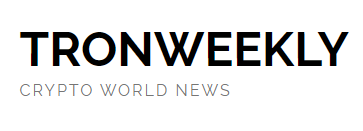You are here: Home / News / Robinhood CEO Pushes for SEC Reform to Enable Tokenized Investments

January 29, 2025 by Bena Ilyas
- Robinhood CEO Vlad Tenev urges United States SEC to modernize laws for tokenized equity in startups.
- Tenev criticizes current U.S. laws restricting early-stage investments to accredited investors only.
- Tenev warns that the U.S. risks falling behind in crypto regulation as global markets advance.
Robinhood Markets co-founder Vlad Tenev has urged U.S. regulators to modernize investment laws to allow early-stage startups to tokenize their equity. In a Washington Post op-ed, he emphasized the need for equitable access to private markets through blockchain technology, arguing it could democratize investment opportunities for retail investors.
Tenev highlighted that current U.S. laws unfairly restrict early-stage investments to accredited investors with a net worth exceeding $1 million or an annual income above $200,000. He argued these regulations have led to wealth concentration among the top 20%, excluding most American households from private-market investment opportunities.
1/ Finally, the U.S. is making up for lost time and taking crypto seriously. So many promising strides forward. It’s time to even further expand our understanding of what’s possible.
Read my op-ed in today's @washingtonpost on democratizing private investing through… pic.twitter.com/ft3fwMW42U
SEC Regulations and Tokenized Securities
Tenev proposed that tokenization could bridge the gap between retail investors and private markets. Tokenization enables digital representation of assets, such as private company shares, which can be traded on blockchain-based platforms. The innovation could allow broader participation in high-growth companies before reaching massive public market valuations.
He pointed out that high-value firms like OpenAI and SpaceX remain inaccessible to retail investors due to outdated laws. The U.S. public markets have halved since 1996, further limiting investment choices for ordinary Americans. Tenev argued that blockchain technology’s global scale and low-cost infrastructure make it a viable solution.
However, he acknowledged the Securities and Exchange Commission’s (SEC) lack of regulatory clarity regarding tokenized securities. U.S. investors remain disadvantaged compared to their global counterparts in jurisdictions like the European Union, Hong Kong, and Singapore without proper guidelines.
During a September House Financial Services subcommittee hearing, Robinhood’s chief legal officer, Dan Gallagher, revealed the firm’s unsuccessful attempt to obtain a special-purpose broker-dealer license for crypto. Once considered for SEC chair under Trump, Gallagher noted that regulatory obstacles continue to stifle innovation within the U.S. digital asset space.
Tenev warned that without swift action, the U.S. risks falling behind in the global race for crypto regulation. He highlighted that regions such as the European Union, Hong Kong, Singapore, and Abu Dhabi have already passed comprehensive security token laws.
“The world is tokenizing, and the United States should not get left behind,” Tenev wrote. His call for an “ultra-inclusive and customizable” investment system underscores the urgency of regulatory adaptation to ensure America remains competitive in the evolving financial landscape.
Read Also: Robinhood CEO’s Bold Move: Bitcoin ETF Listing on the Horizon

 9 months ago
53
9 months ago
53




 English (US) ·
English (US) ·